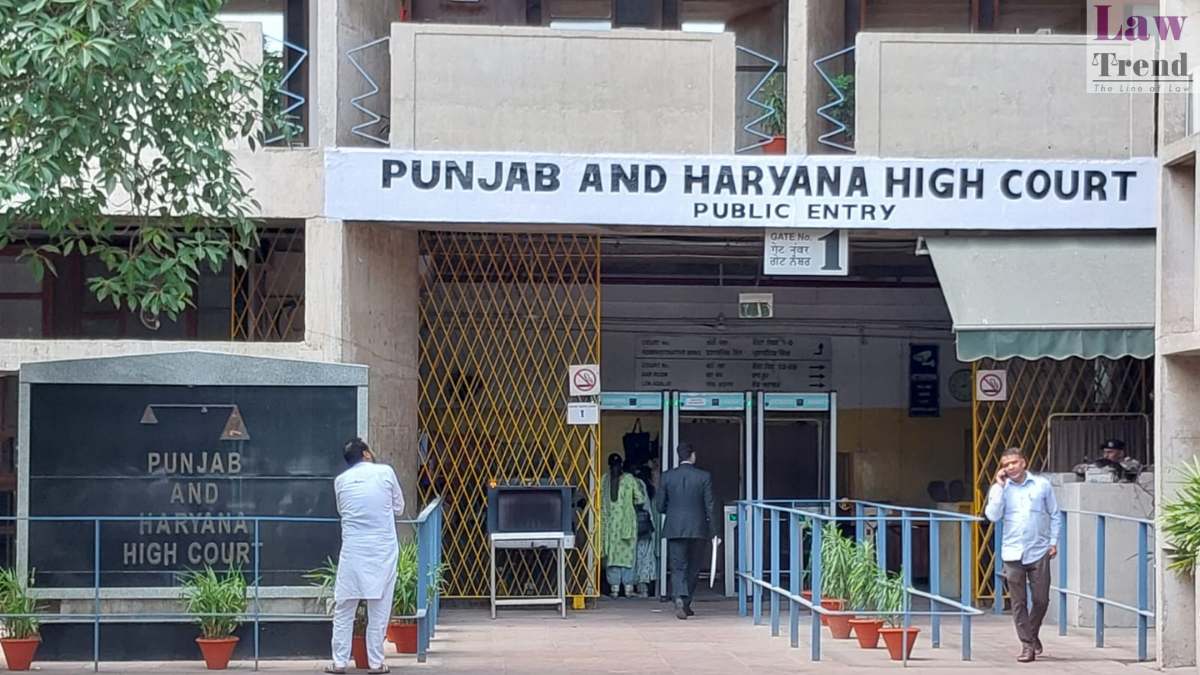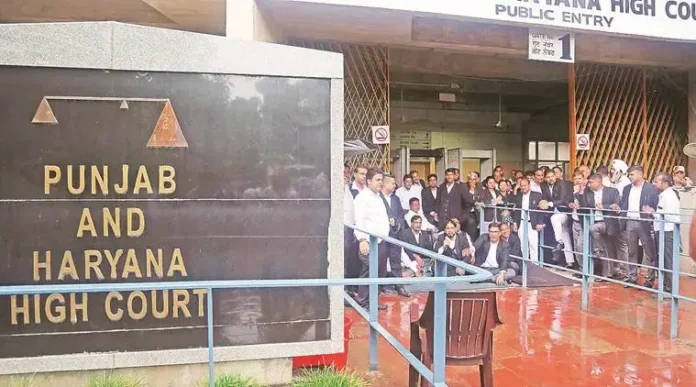In a significant legal development, the Punjab and Haryana High Court has ordered the cancellation of 1,112 First Information Reports (FIRs) filed against individuals for violating COVID-19 lockdown restrictions. These FIRs, registered under Section 188 of the Indian Penal Code (IPC) between March 2020 and March 2022, were linked to violations of the nationwide lockdown imposed to curb the spread of the virus. This decision offers substantial relief to citizens who faced legal challenges during an unprecedented public health crisis.
The lockdown, which began on March 24, 2020, brought the entire nation to a standstill, leaving citizens confined to their homes and businesses shut down. The restrictions aimed at controlling the rapid transmission of COVID-19 also led to a host of legal consequences for those found violating the rules, often resulting in FIRs being filed under Section 188 IPC, which penalizes disobedience to orders duly promulgated by public servants.
1,112 FIRs Cancelled: Breaking Down the Numbers
The High Court’s decision cancels a total of 1,112 FIRs spread across Punjab, Haryana, and Chandigarh. Specifically, 859 FIRs were cancelled in Punjab, 169 in Haryana, and 84 in Chandigarh. These FIRs were largely registered for actions such as stepping out of homes, gathering in public spaces, or conducting business activities during the lockdown when stringent restrictions were in place.
The FIRs under Section 188 IPC typically involve offenses of disobeying orders from authorities, such as leaving homes without valid reasons, not wearing masks, violating curfew timings, or disregarding social distancing norms. The violators included ordinary citizens who, in many cases, may have unintentionally broken the rules.
By cancelling these FIRs, the court has provided respite to hundreds of individuals, many of whom were caught in a legal maze during an already challenging time. The High Court recognized that such cases, if allowed to linger, would continue to burden the judicial system unnecessarily.
The High Court’s Reasoning: Why the FIRs Were Cancelled
The court’s reasoning behind this decision is both practical and compassionate. While the lockdown violations were taken seriously at the time due to the pressing need to control the pandemic, the High Court acknowledged that the circumstances today have changed dramatically. With the pandemic now largely under control, these FIRs were seen as hindrances to the courts’ efficient functioning.
The court pointed out that the pandemic phase is effectively over, and continuing to process these FIRs would consume valuable judicial time and resources. As a result, the court concluded that cancelling these FIRs would free up the court calendar for more pressing and serious cases.
In a statement, the court emphasized that it is important to view these cases in the context of the extraordinary times in which they were filed. The court also noted that, in most instances, the alleged offenses did not pose any serious or ongoing threat to public safety or health.
Impact on the Judicial System
One of the most significant outcomes of this decision is the reduction in judicial backlog. Across India, courts are grappling with an overwhelming number of pending cases, many of which stem from the lockdown period. These cases, filed during the pandemic, added additional strain to an already stretched judicial system.
By cancelling over 1,100 FIRs, the Punjab and Haryana High Court has effectively lifted a significant burden from the courts. This decision allows the judiciary to focus on more pressing matters, such as serious criminal cases, civil disputes, and other essential legal proceedings that require immediate attention. The removal of these cases from the court’s dockets is a welcome step toward improving judicial efficiency and reducing delays in the legal process.
Public Relief and Reactions
For the individuals who had FIRs filed against them during the pandemic, the High Court’s decision is undoubtedly a relief. Many of those who were charged under Section 188 IPC were ordinary citizens who may have violated the lockdown unintentionally. The uncertainty surrounding these FIRs, and the potential legal consequences, had created stress and anxiety for those involved. Now, with the cancellation of these FIRs, citizens can finally move on without the shadow of legal action hanging over their heads.
Public reactions to the High Court’s decision have been largely positive, with many praising the move as a sensible and necessary step. In Punjab, Haryana, and Chandigarh, local business owners, workers, and residents who had faced legal challenges during the lockdown period have expressed their relief. Social media platforms saw discussions about how the decision was a humane approach to dealing with minor violations from a period of extraordinary global crisis.

Moving Forward: Lessons from the Pandemic
The cancellation of these FIRs raises an important question: How should the legal system deal with cases arising from emergency situations like pandemics? The COVID-19 lockdown was an unprecedented event that forced governments and law enforcement agencies to take extreme measures. However, as this decision illustrates, there comes a time when the legal system must adapt to the new reality and shift focus to more current and relevant issues.
As we move forward from the pandemic, it is crucial that the legal framework remains flexible and considerate of the broader context in which violations occur. The High Court’s decision sets an important precedent for how we, as a society, address minor offenses committed in times of crisis.
A Step Toward Judicial Efficiency and Public Relief
The Punjab and Haryana High Court’s decision to cancel 1,112 FIRs registered during the COVID-19 lockdown is a welcome development for both the judicial system and the public. It not only helps alleviate the strain on the courts but also provides relief to ordinary citizens who faced legal challenges during a global crisis. As India continues to recover from the pandemic, this decision serves as a reminder that the legal system must remain adaptable and compassionate in times of extraordinary events.
With the cancellation of these cases, the courts can now focus on more pressing matters, ensuring that justice is delivered more efficiently while also closing the chapter on one of the most challenging periods in recent history.


